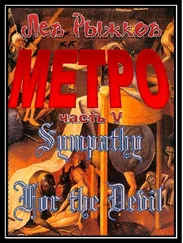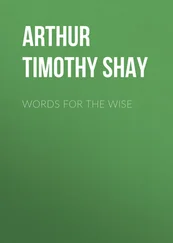“Here, you!” said the boatswain, “you are rich, you have been always saying. You have a bottle or some foolishness.”
“Yes,” said Keawe, “I am rich; I will go back and get some money from my wife, who keeps it.”
“That’s a bad idea, mate,” said the boatswain. “Never you trust a petticoat with dollars. They’re all as false as water; you keep an eye on her.”
Now, this word struck in Keawe’s mind; for he was muddled with what he had been drinking.
“I should not wonder but she was false, indeed,” thought he. “Why else should she be so cast down at my release? But I will show her I am not the man to be fooled, I will catch her in the act.”
Accordingly, when they were back in town, Keawe bade the boatswain wait for him at the corner, by the old calaboose, and went forward up the avenue alone to the door of his house. The night had come again; there was a light within, but never a sound; and Keawe crept about the corner, opened the back door softly, and looked in.
There was Kokua on the floor, the lamp at her side, before her was a milk-white bottle, with a round belly and a long neck; and as she viewed it, Kokua wrung her hands.
A long time Keawe stood and looked in the doorway. At first he was struck stupid; and then fear fell upon him that the bargain had been made amiss, and the bottle had come back to him as it came at San Francisco; and at that his knees were loosened, and the fumes of the wine departed from his head like mists off a river in the morning. And then he had another thought; and it was a strange one, that made his cheeks burn.
“I must make sure of this,” thought he.
So he closed the door, and went softly round the corner again, and then came noisily in, as though he were but now returned. And, lo! by the time he opened the front door no bottle was to be seen; and Kokua sat in a chair and started up like one awakened out of sleep.
“I have been drinking all day and making merry,” said Keawe. “I have been with good companions, and now I only come back for money, and return to drink and carouse with them again.”
Both his face and voice were as stern as judgement, but Kokua was too troubled to observe.
“You do well to use your own, my husband,” said she, and her words trembled.
“O, I do well in all things,” said Keawe, and he went straight to the chest and took out money. But he looked besides in the corner where they kept the bottle, and there was no bottle there.
At that the chest heaved upon the floor like a sea billow, and the house spun about him like a wreath of smoke, for he saw he was lost now, and there was no escape. “It is what I feared,” he thought. “It is she who bought it.”
And then he came to himself a little and rose up; but the sweat streamed on his face as thick as the rain and as cold as the well-water.
“Kokua,” said he, “I said to you today what ill became me. Now I return to carouse with my jolly companions,” and at that he laughed a little quietly. “I will take more pleasure in the cup if you forgive me.”
She clasped his knees in a moment; she kissed his knees with flowing tears.
“O,” she cried, “I asked but a kind word!”
“Let us never one think hardly of the other,” said Keawe, and was gone out of the house.
Now, the money that Keawe had taken was only some of that store of centime piece they had laid in at their arrival. It was very sure he had no mind to be drinking. His wife had given her soul for him, now he must give his for hers; no other thought was in the world with him.
At the corner, by the old calaboose, there was the boatswain waiting.
“My wife has the bottle,” said Keawe, “and, unless you help me to recover it, there can be no more money and no more liquor tonight.”
“You do not mean to say you are serious about that bottle?” cried the boatswain.
“There is the lamp,” said Keawe. “Do I look as if I was jesting?”
“That is so,” said the boatswain. “You look as serious as a ghost.”
“Well, then,” said Keawe, “here are two centimes; you must go to my wife in the house, and offer her these for the bottle, which (if I am not much mistaken) she will give you instantly. Bring it to me here, and I will buy it back from you for one; for that is the law with this bottle, that it still must be sold for a less sum. But whatever you do, never breathe a word to her that you have come from me.”
“Mate, I wonder are you making a fool of me?” asked the boatswain.
“It will do you no harm if I am,” returned Keawe.
“That is so, mate,” said the boatswain.
“And if you doubt me,” added Keawe, “you can try. As soon as you are clear of the house, wish to have your pocket full of money, or a bottle of the best rum, or what you please, and you will see the virtue of the thing.”
“Very well, Kanaka,” said the boatswain. “I will try; but if you are having your fun out of me, I will take my fun out of you with a belaying pin.”
So the whaler-man went off upon the avenue; and Keawe stood and waited. It was near the same spot where Kokua had waited the night before; but Keawe was more resolved, and never faltered in his purpose; only his soul was bitter with despair.
It seemed a long time he had to wait before he heard a voice singing in the darkness of the avenue. He knew the voice to be the boatswain’s; but it was strange how drunken it appeared upon a sudden.
Next, the man himself came stumbling into the light of the lamp. He had the devil’s bottle buttoned in his coat; another bottle was in his hand; and even as he came in view he raised it to his mouth and drank.
“You have it,” said Keawe. “I see that.”
“Hands off!” cried the boatswain, jumping back. “Take a step near me, and I’ll smash your mouth. You thought you could make a cat’s-paw of me, did you?”
“What do you mean?” cried Keawe.
“Mean?” cried the boatswain. “This is a pretty good bottle, this is; that’s what I mean. How I got it for two centimes I can’t make out; but I’m sure you shan’t have it for one.”
“You mean you won’t sell?” gasped Keawe.
“No, sir!” cried the boatswain. “But I’ll give you a drink of the rum, if you like.”
“I tell you,” said Keawe, “the man who has that bottle goes to hell.”
“I reckon I’m going anyway,” returned the sailor; “and this bottle’s the best thing to go with I’ve struck yet. No, sir!” he cried again, “this is my bottle now, and you can go and fish for another.”
“Can this be true?” Keawe cried. “For your own sake, I beseech you, sell it me!”
“I don’t value any of your talk,” replied the boatswain. “You thought I was a flat; now you see I’m not; and there’s an end. If you won’t have a swallow of the rum, I’ll have one myself. Here’s your health, and goodnight to you!”
So off he went down the avenue toward town, and there goes the bottle out of the story.
But Keawe ran to Kokua light as the wind; and great was their joy that night; and great, since then has been the peace of all their days in the Bright House.
Two Old Men by Kage Baker
It was Sunday, January 26, 1961, and Markie Souza was six years old. He sat patiently beside his mother in the long pew, listening to Father Gosse talk about how wonderful it was to have a Catholic in the White House at last. Markie knew this was a good thing, in a general kind of way, because he was a Catholic himself; but it was too big and too boring to think about, so he concentrated his attention on wishing his little sister would wake up.
She was limp on his mother’s ample shoulder, flushed in the unseasonable heat, and the elastic band that held her straw hat on was edging forward under her chin. Any minute now it was going to ride up and snap her in the nose. Markie saw his opportunity and seized it: he reached up and tugged the band back into place, just incidentally jostling the baby into consciousness. Karen squirmed, turned her head and opened her eyes. She might have closed them again, but just then everybody had to stand up to sing Tantum Ergo Sacramentum. The little girl looked around in unbelieving outrage and began to protest. Markie put his arms up to her.
Читать дальше












